We live in a body-negative culture, especially for women. 🙁
More at Refinery29

Amazing experience and good speaker:
November 4, 2007, Île de Gorée, Dakar, Senegal
When the ferry was ready for us, everyone in the waiting room squeezed through two small exits onto the dock. Then, we crossed over to the ferry with two guys grabbing each passenger to help them across the one foot wide step to get on board. Once on board, the two Germans and I sat on the upper deck. I chose a spot in the shade. In port next to us was a giant container and cargo ship, twelve stories tall. The ferry boat is new, launched in 2006 under the name of Beer. The Germans and I joked quite a bit about that… like, how come no free beer on board? 😉
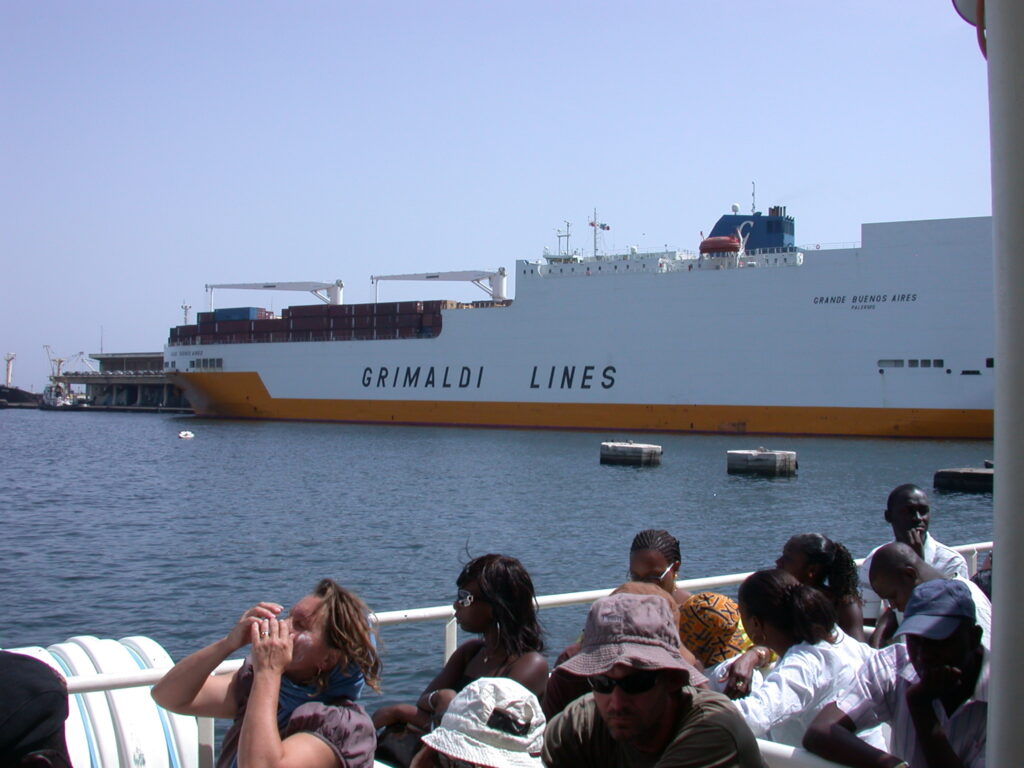
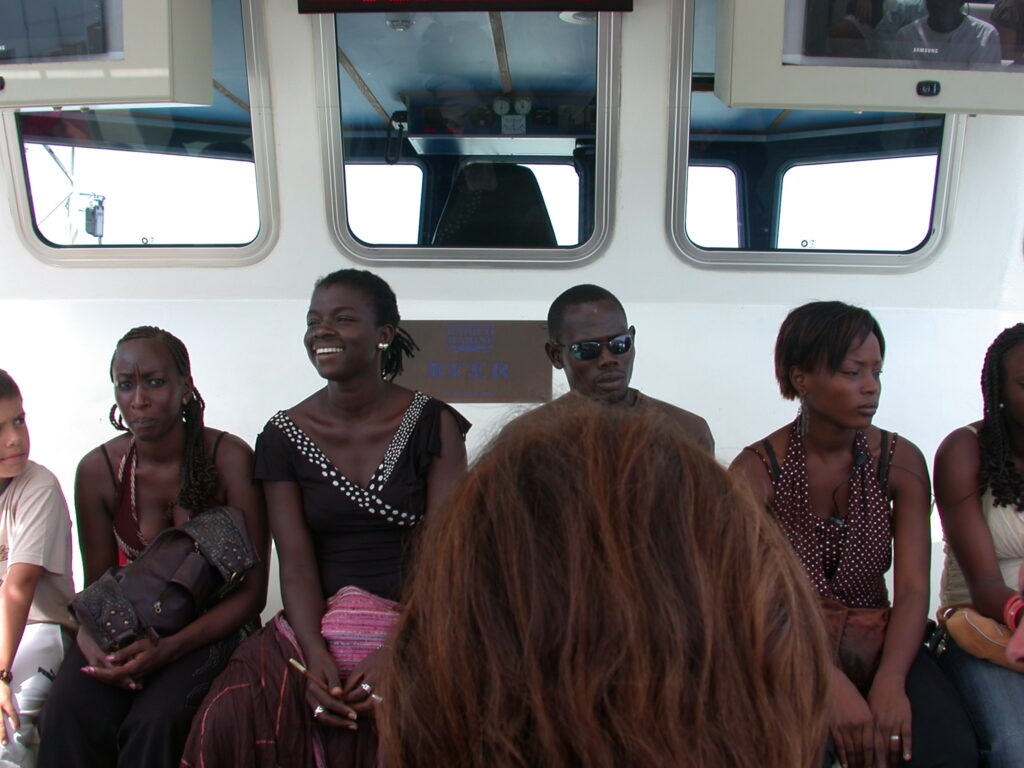
From the ferry, we had excellent views back to the Dakar harbor and Cape Vert (I think it’s called).
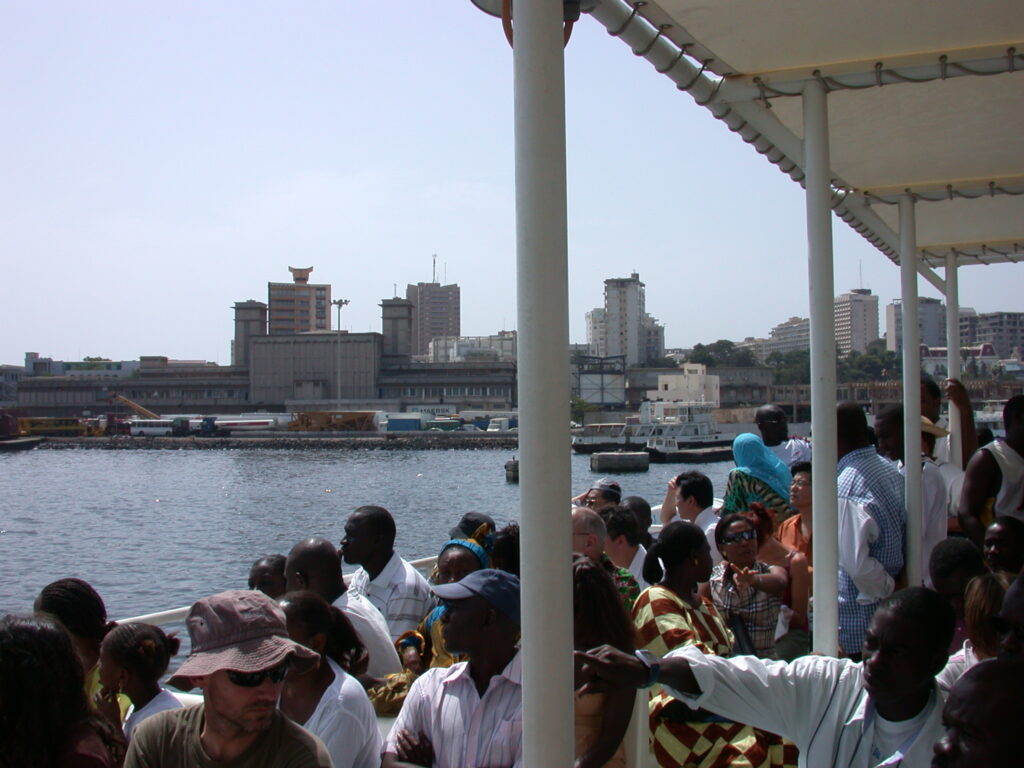
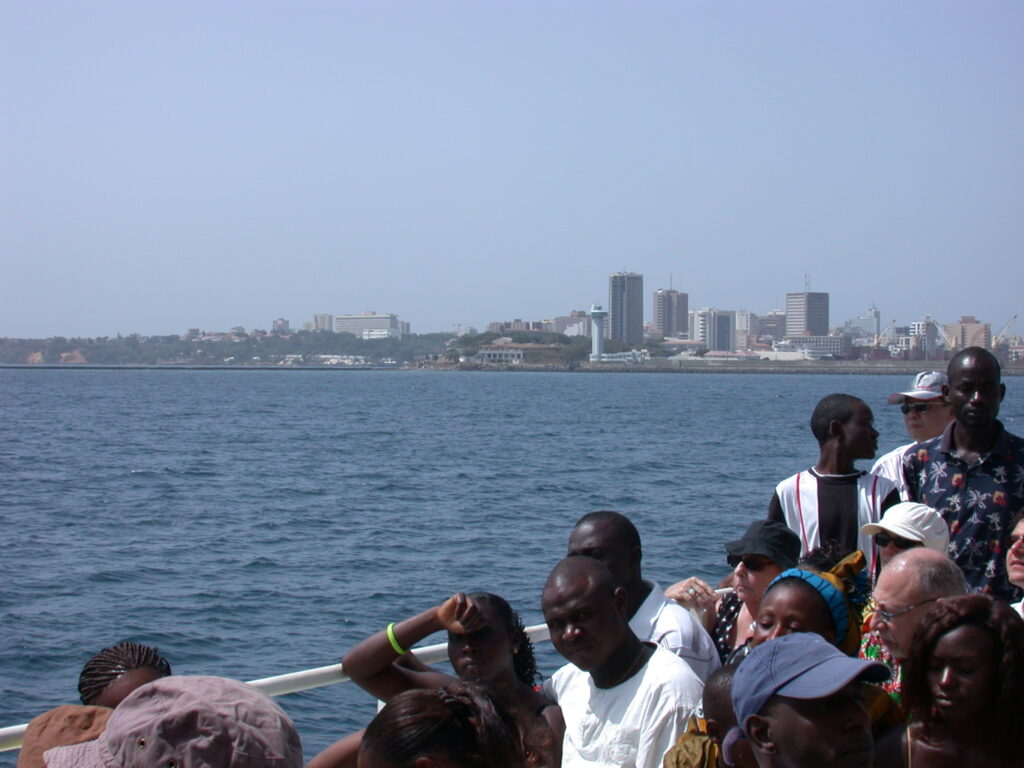
Soon, we reached the open sea with magnificent views of Île de Gorée.
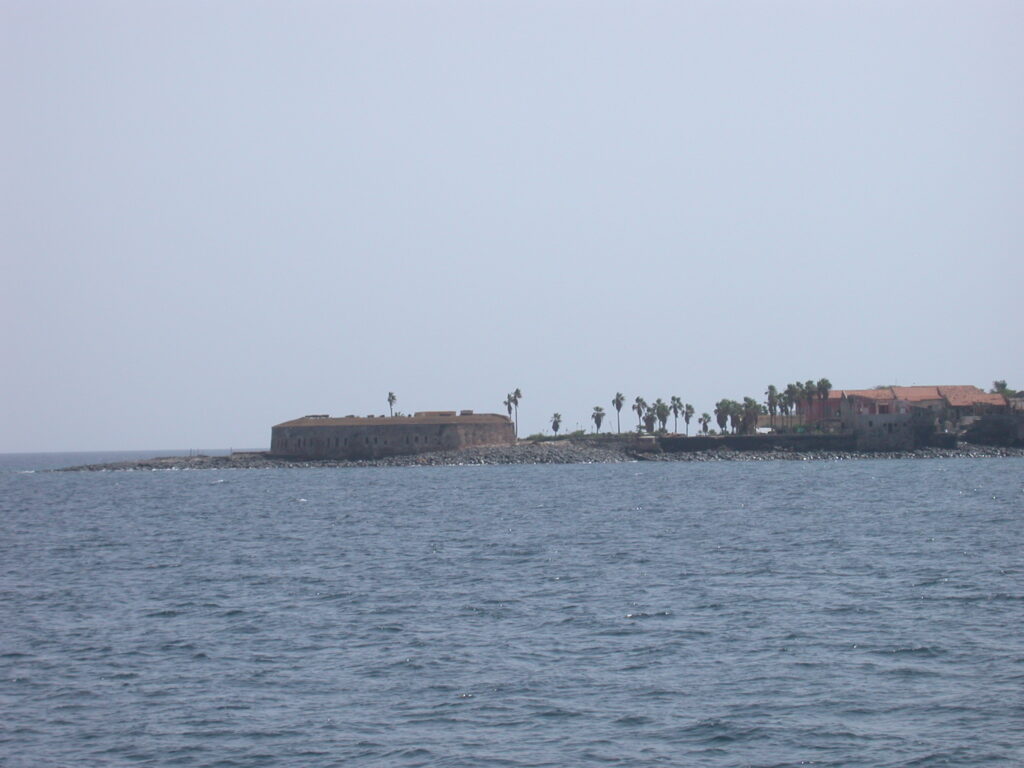
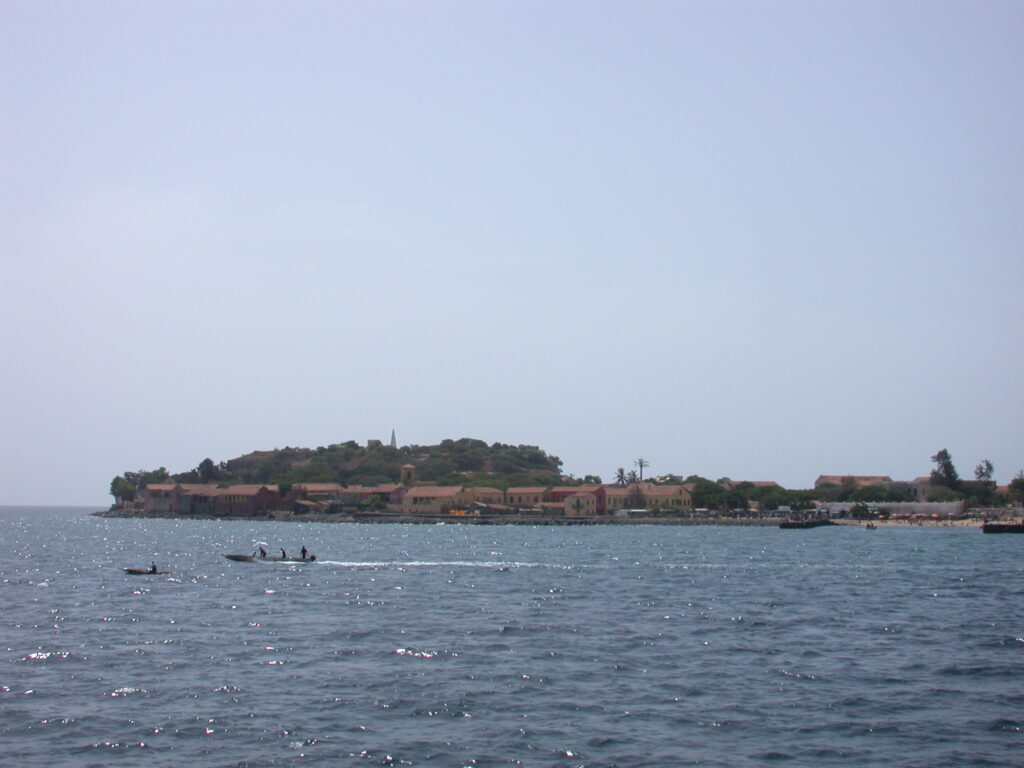
We sailed around the tip of the island where the fortress, now a museum, is located to get a great view of the harbor, beach, and seaside.

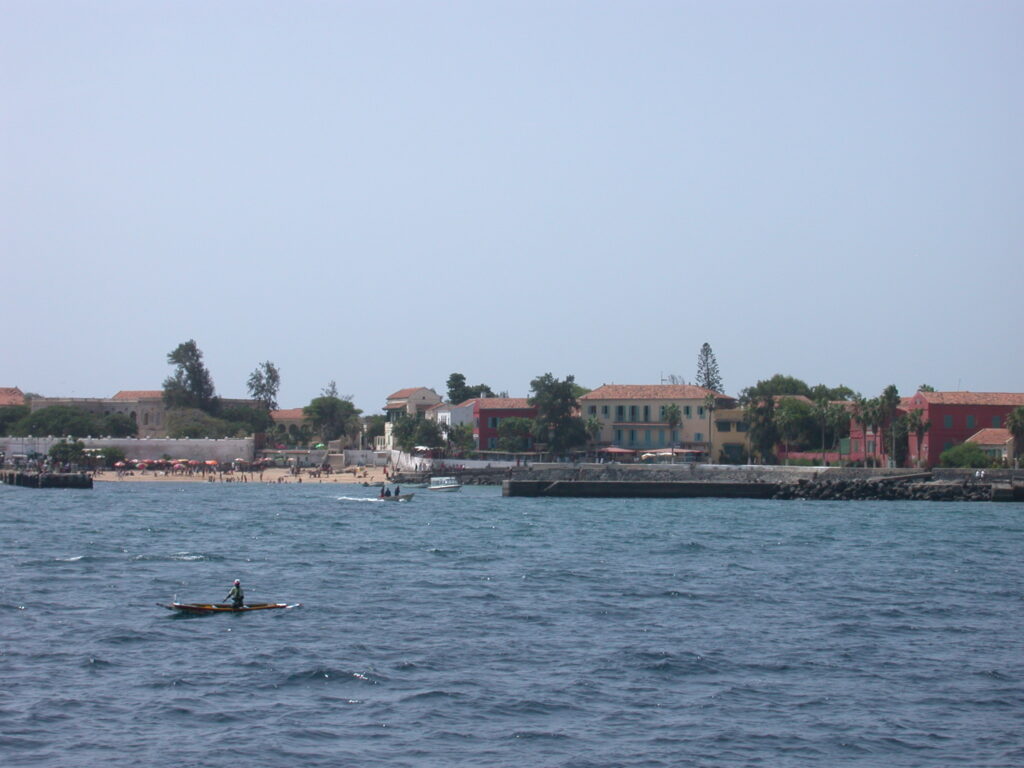
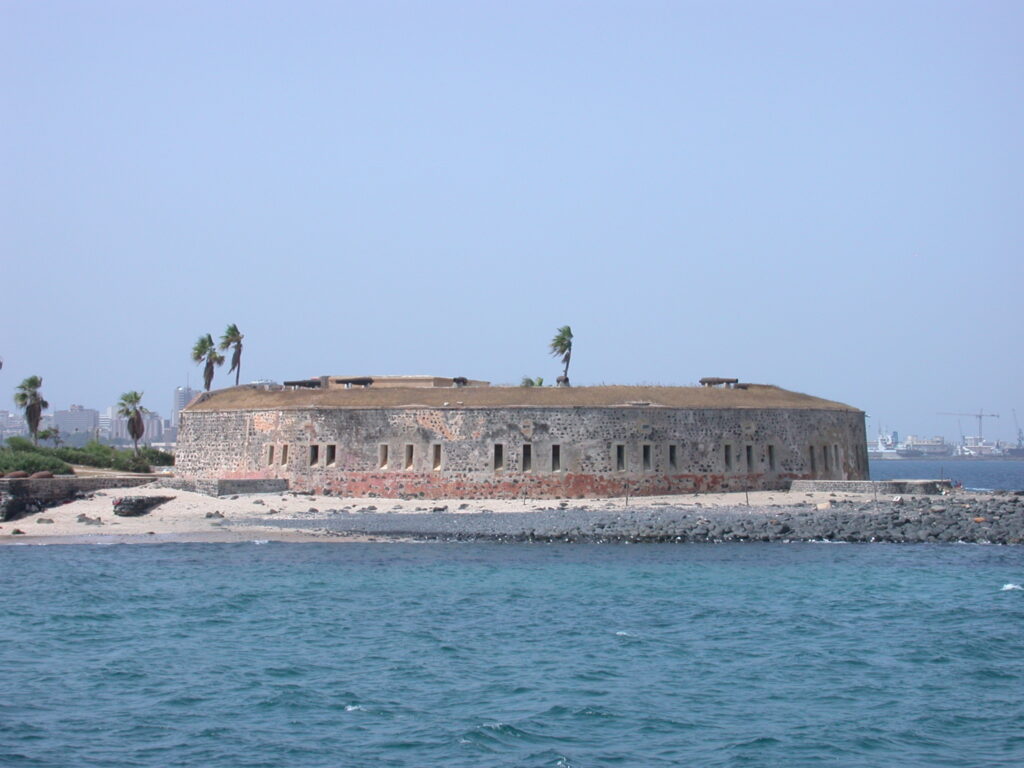
The island boasts some wonderful old houses.
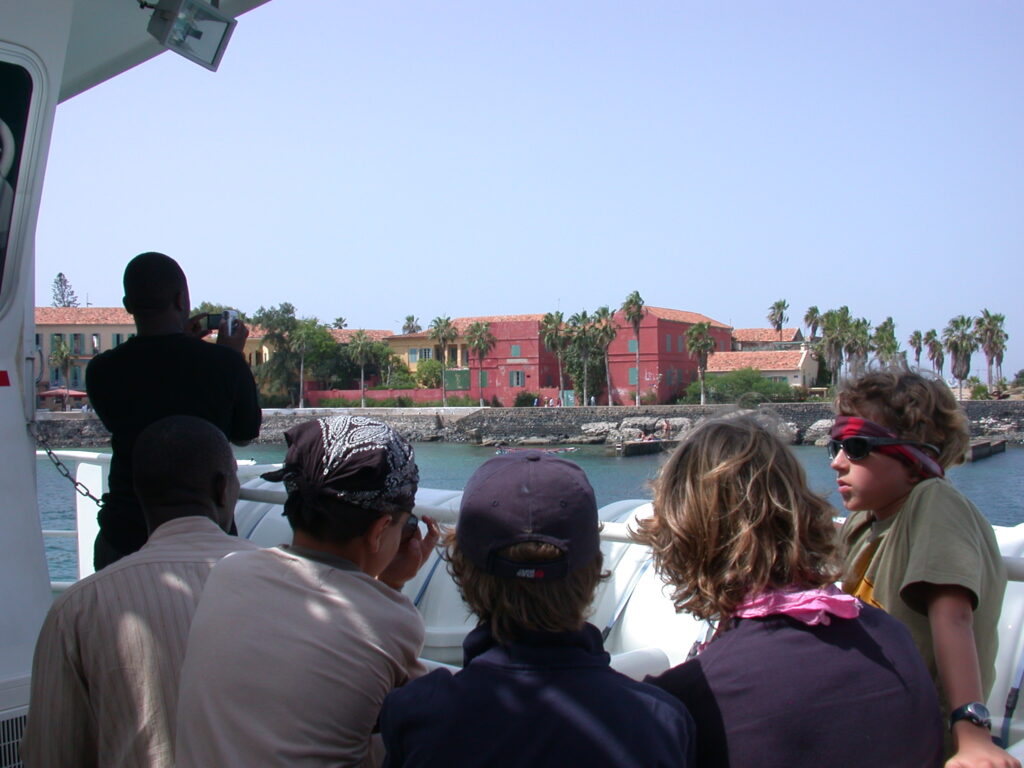
Once on land, we paid a tourist tax and walked toward the Maison des Esclaves (Slave House), which was closed for siesta time. On the way to the Maison, we saw this monument to the end of slavery with a man and some children having their photo taken alongside the monument.
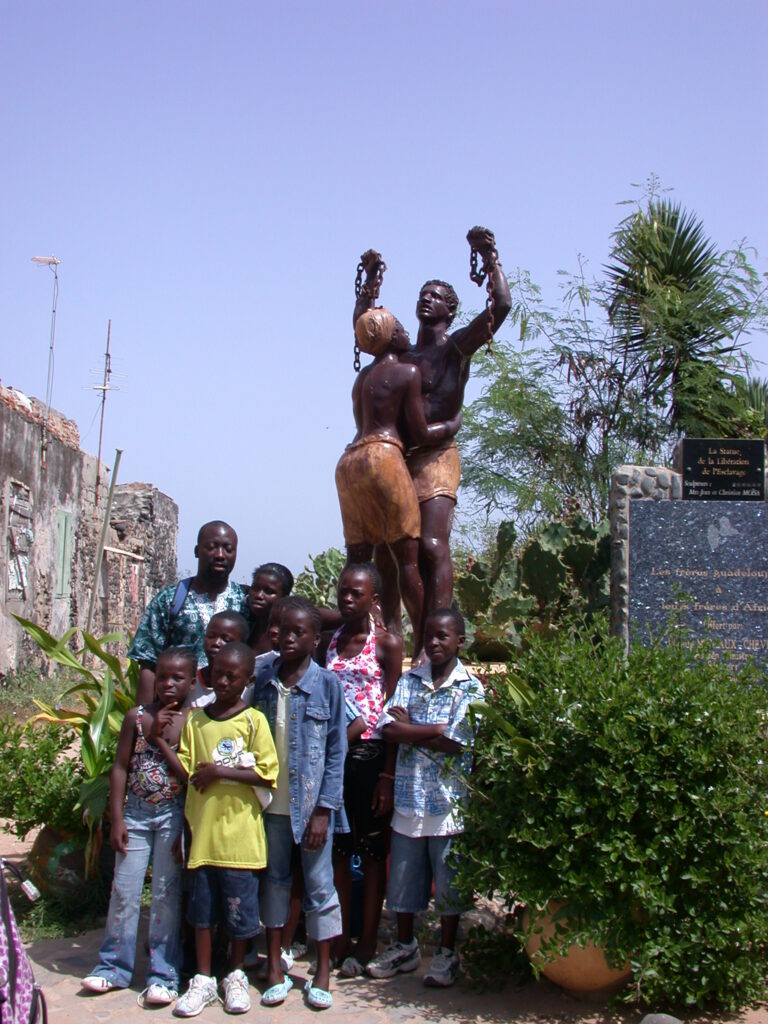
We also saw a breadfruit tree with breadfruit hanging from its branches.
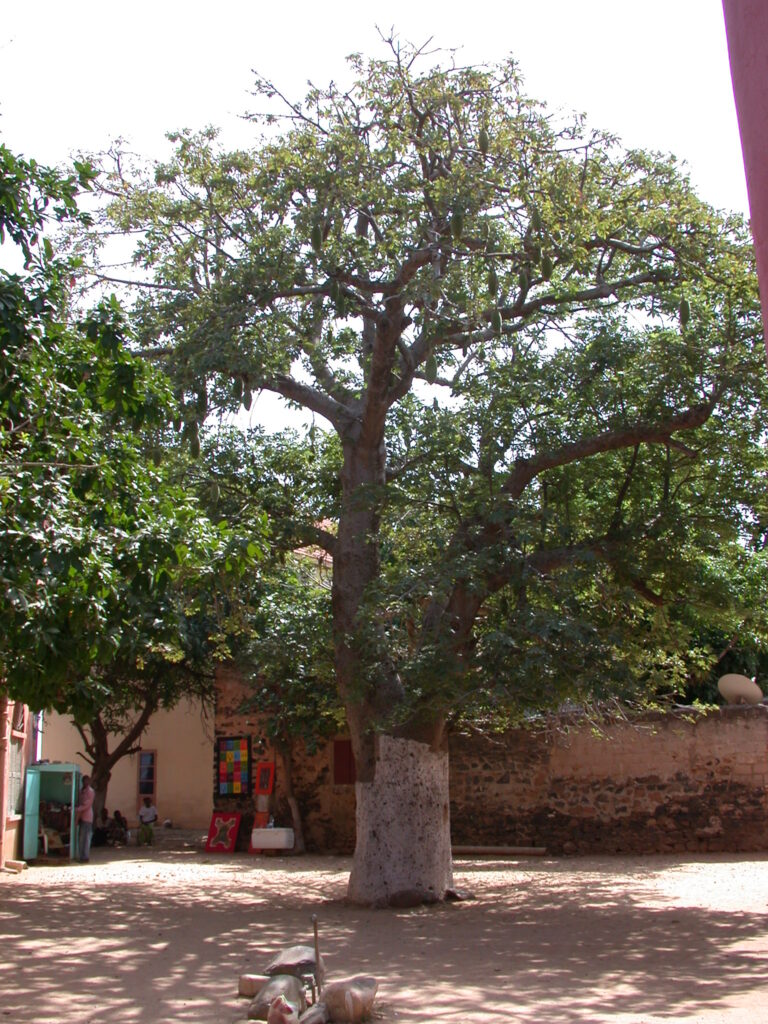
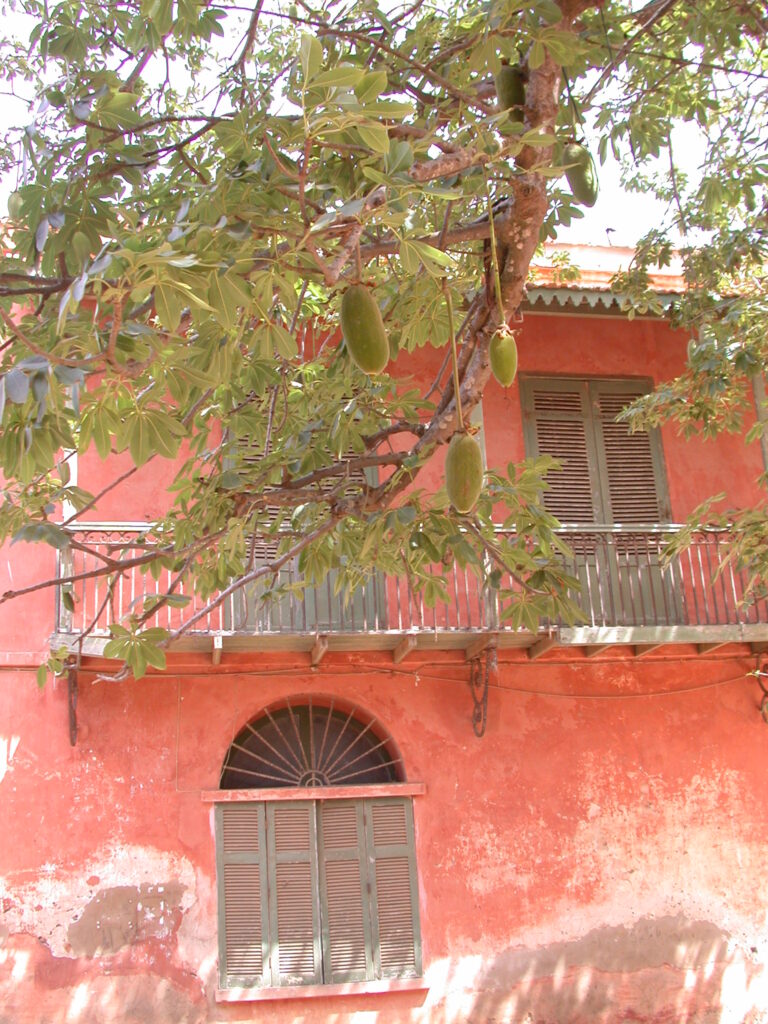
We entered a cathedral with some black statues, as well as white ones.
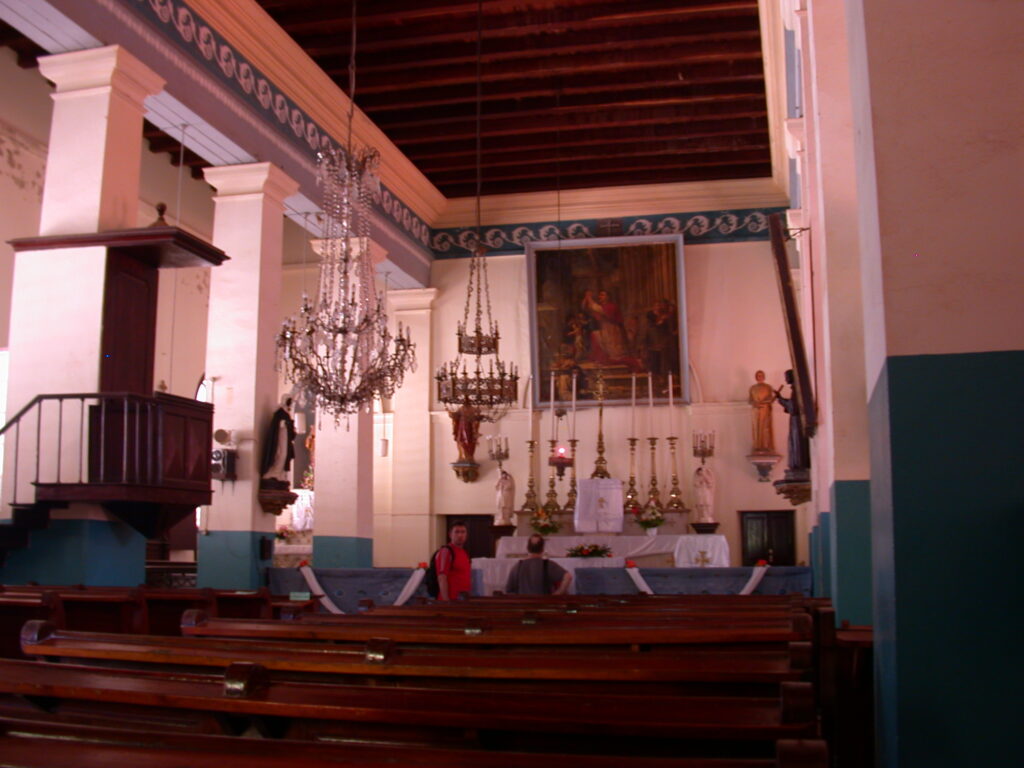
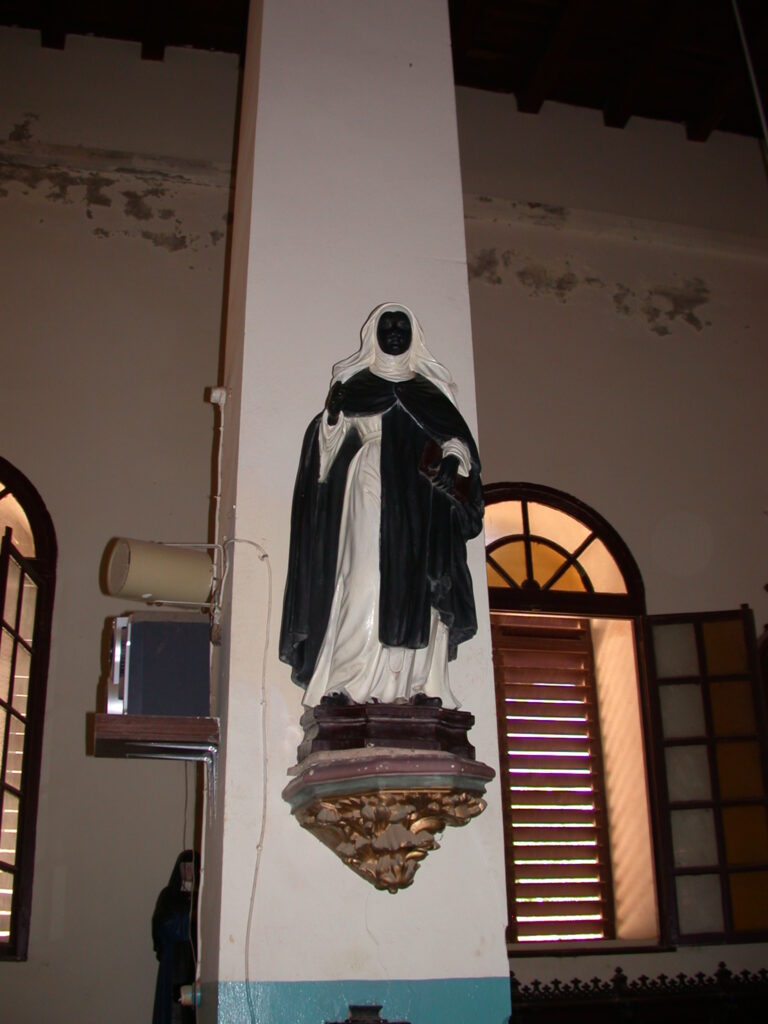
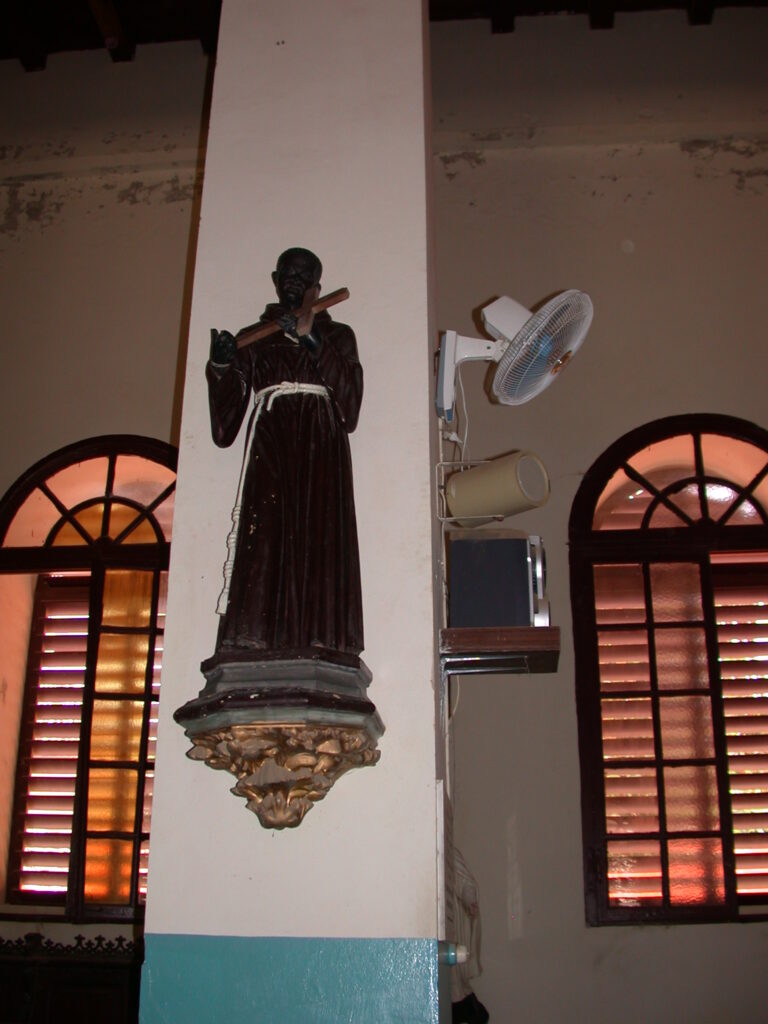
On our way up to a peak where the old cannons are gradually rusting away, we saw many arts and crafts stands and paintings painted by local artists.
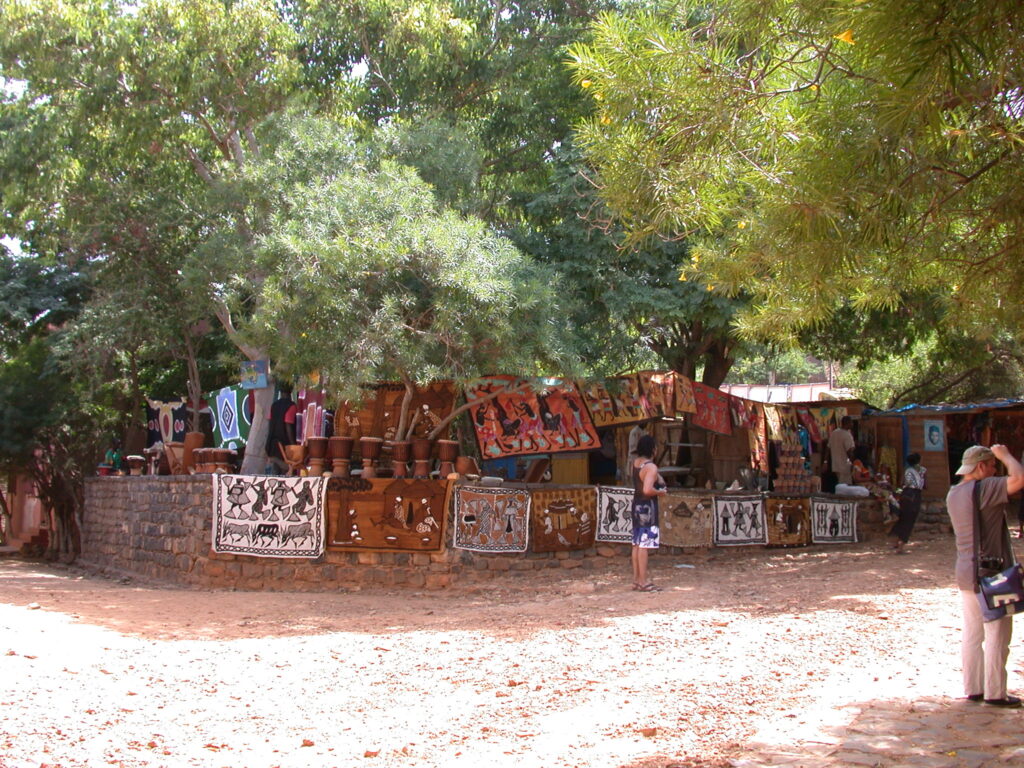
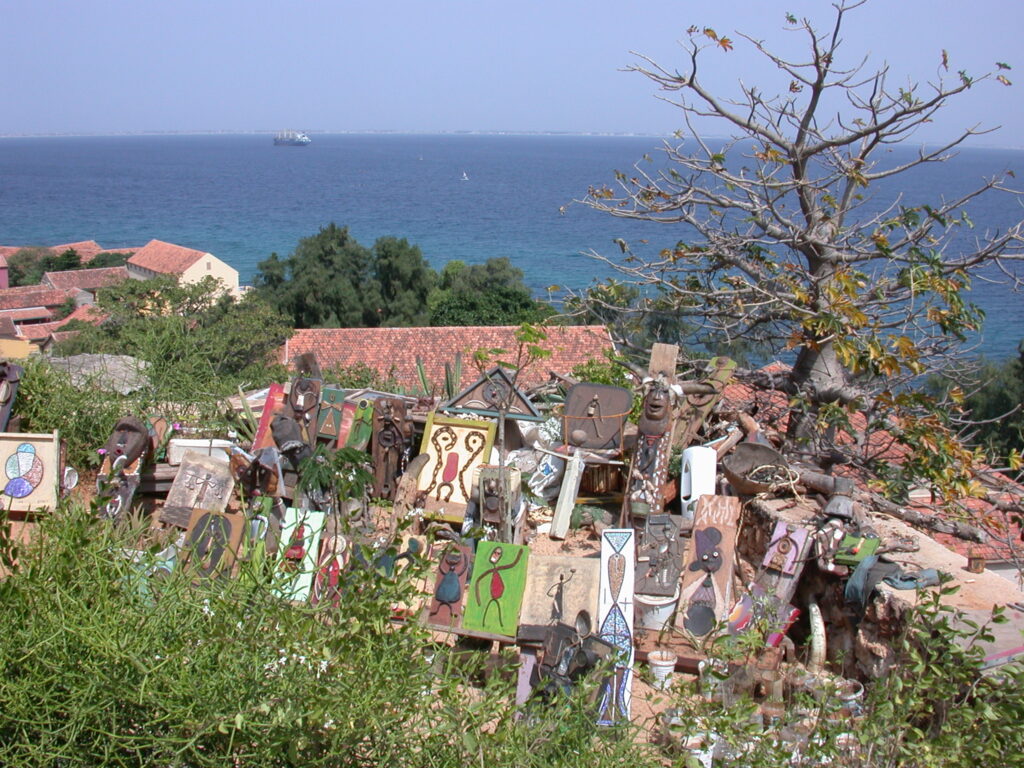
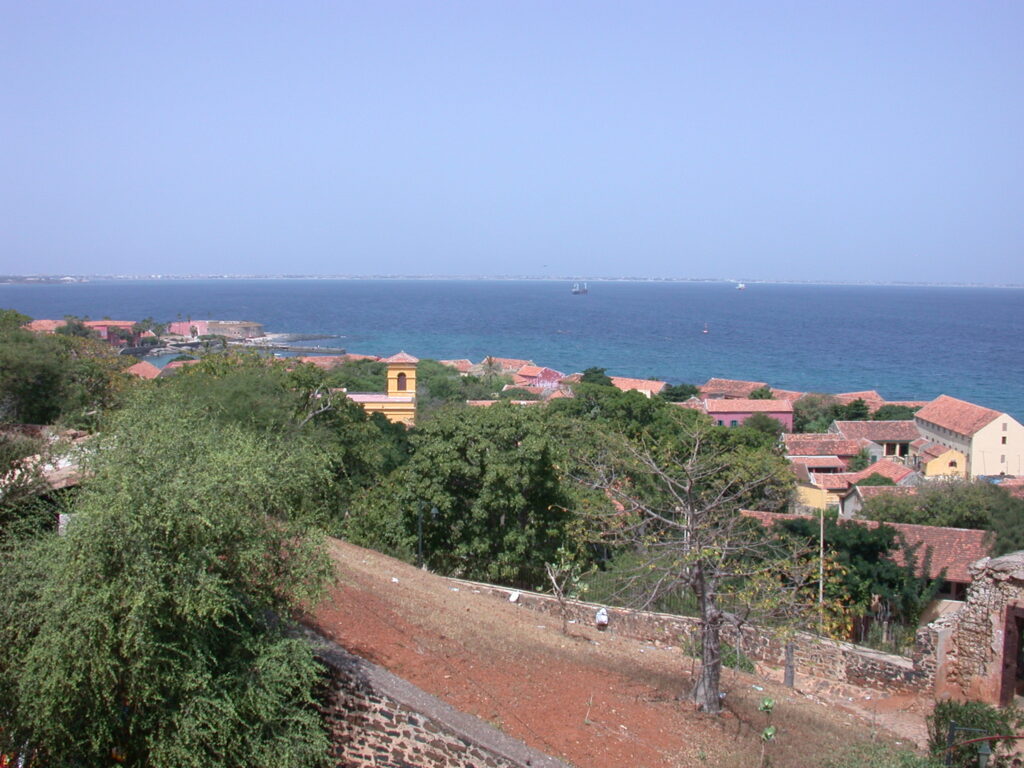
On the way down from the peak, we saw a local soccer game with some guys in real good shape.
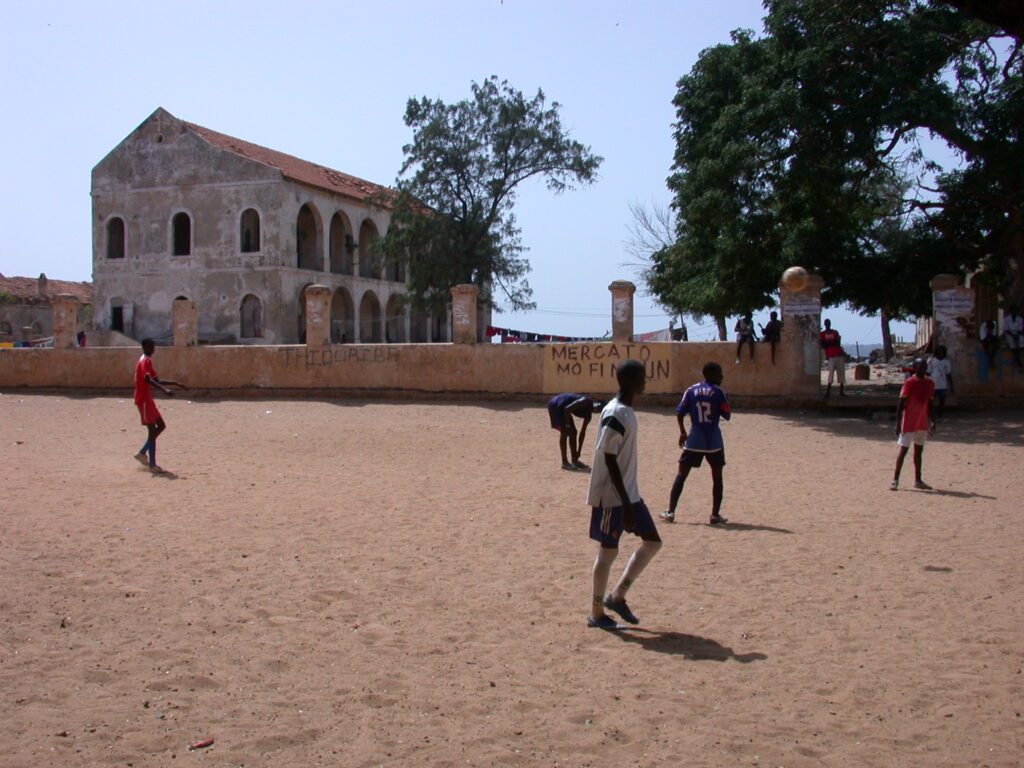
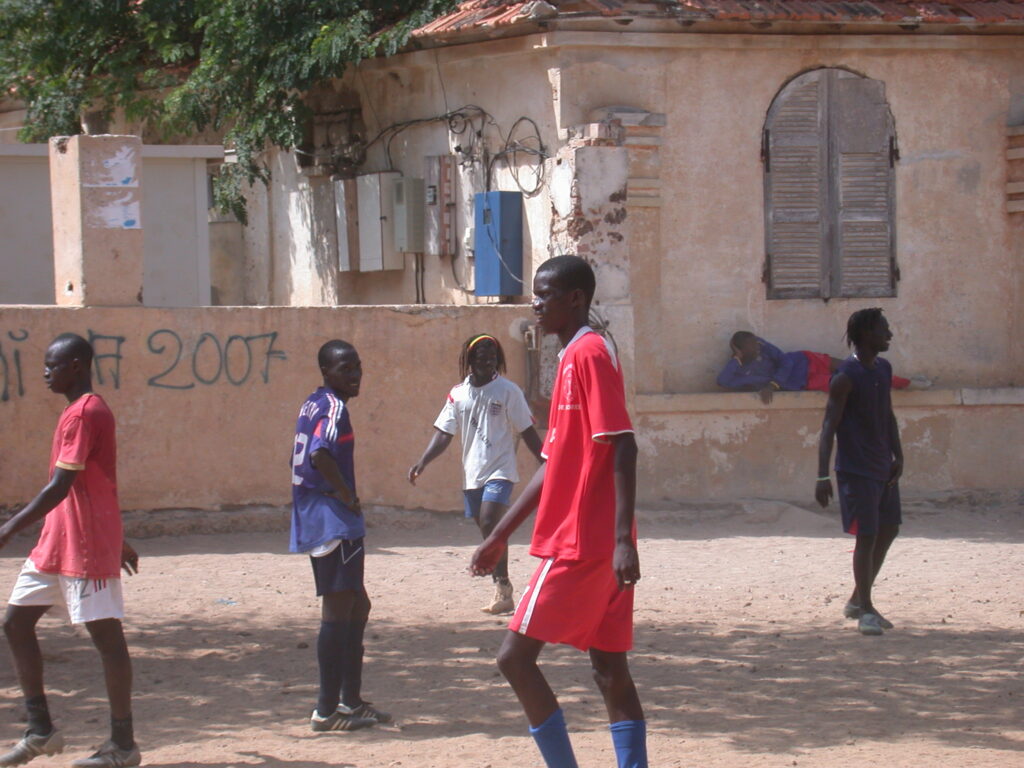
We walked over to the port for lunch. A man tried to get us to eat at his restaurant, but I really wanted to eat at the place recommended by the Lonely Planet guidebook. Eventually we escaped his clutches and made our way over to the Ana Saban restaurant.
After lunch, we went to the Musée Historique de l’IFAN on the island.
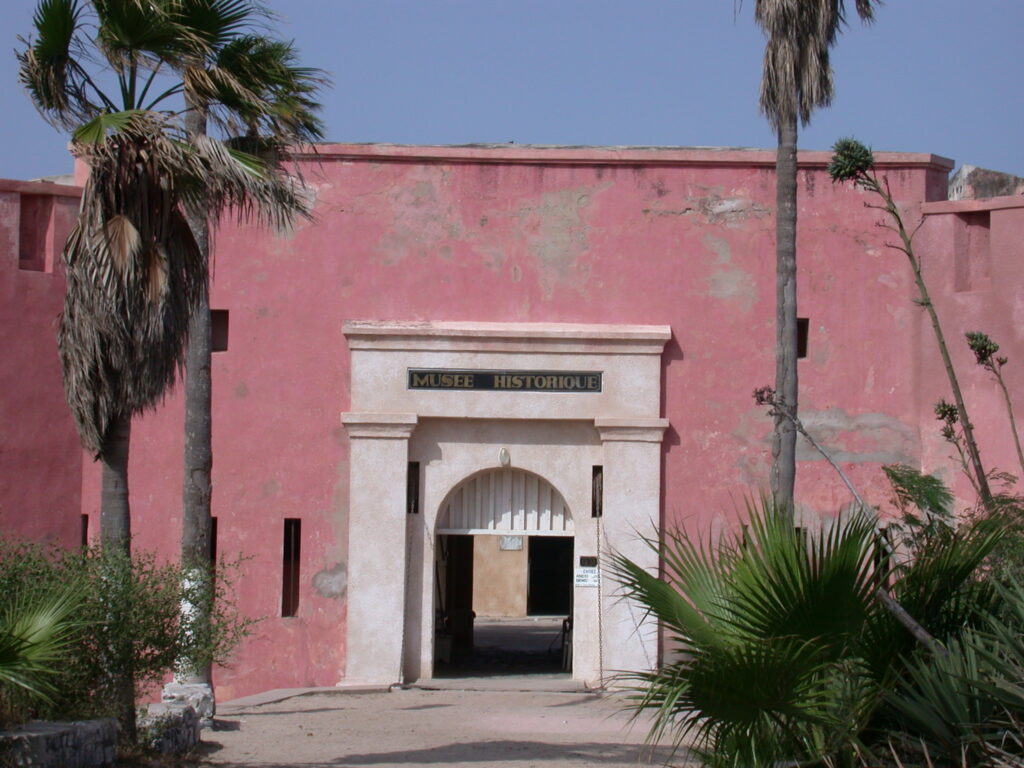
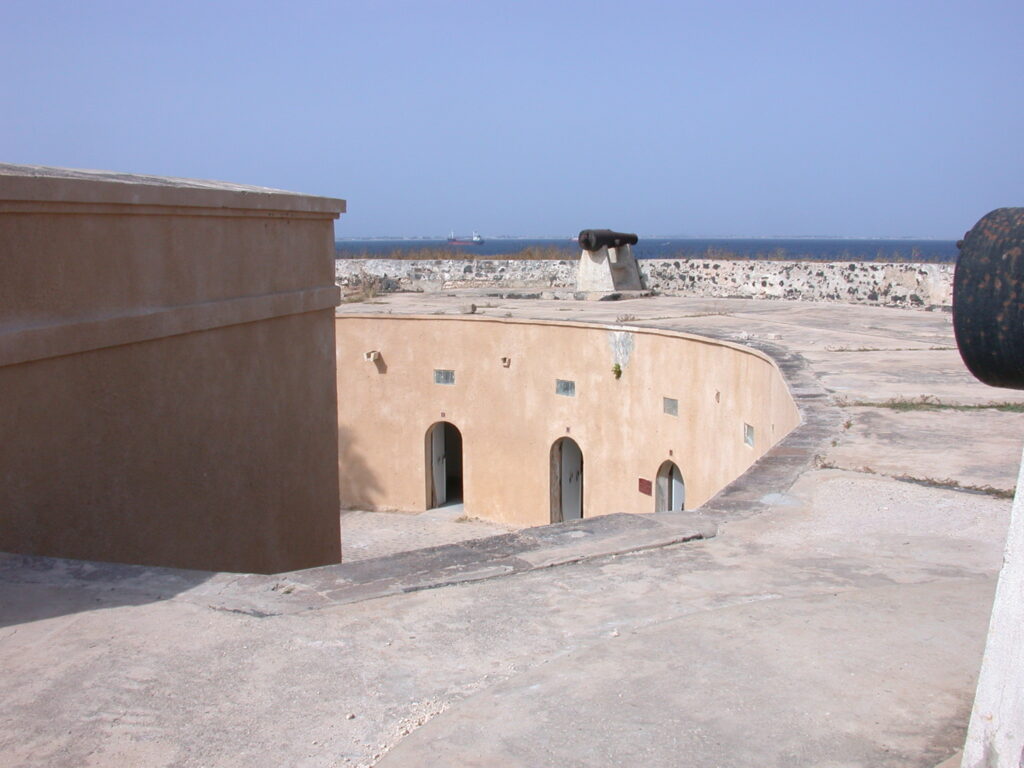
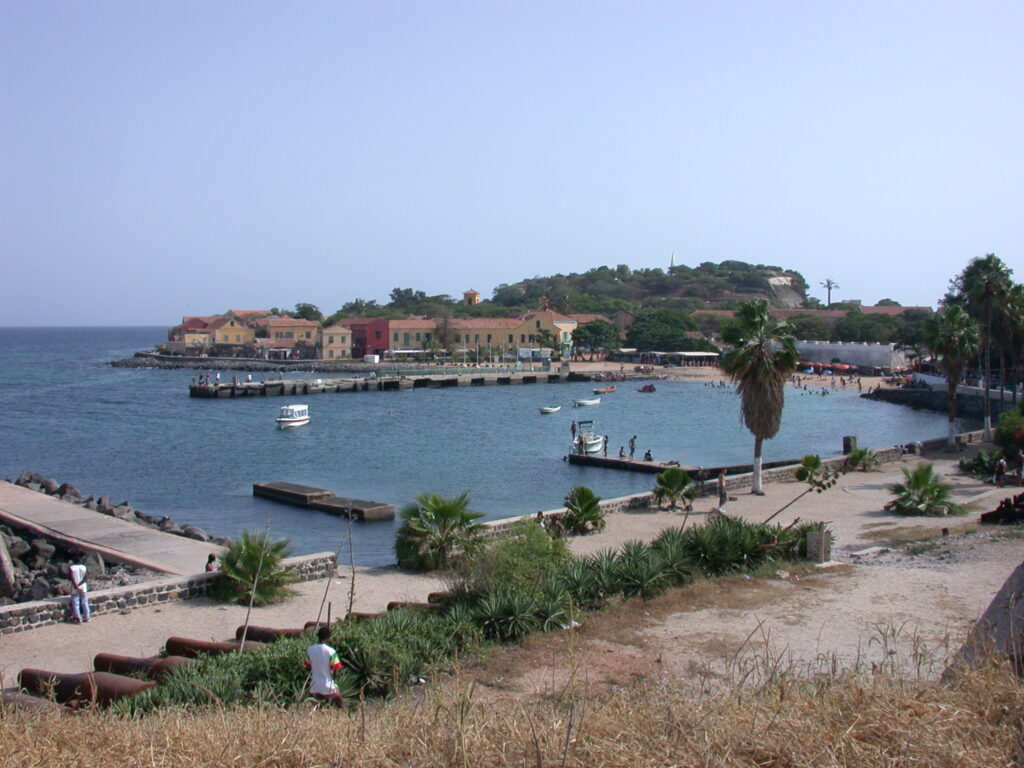
I somehow lost the Germans at the museum, so I walked alone back over past the beach to the Maison des Esclaves, now finished with their siesta break. I started by taking pictures of the “Door of No Return,” which was apparently the last place where slaves bound for the Great Passage across the Atlantic Ocean to the Americas set foot on the African continent.
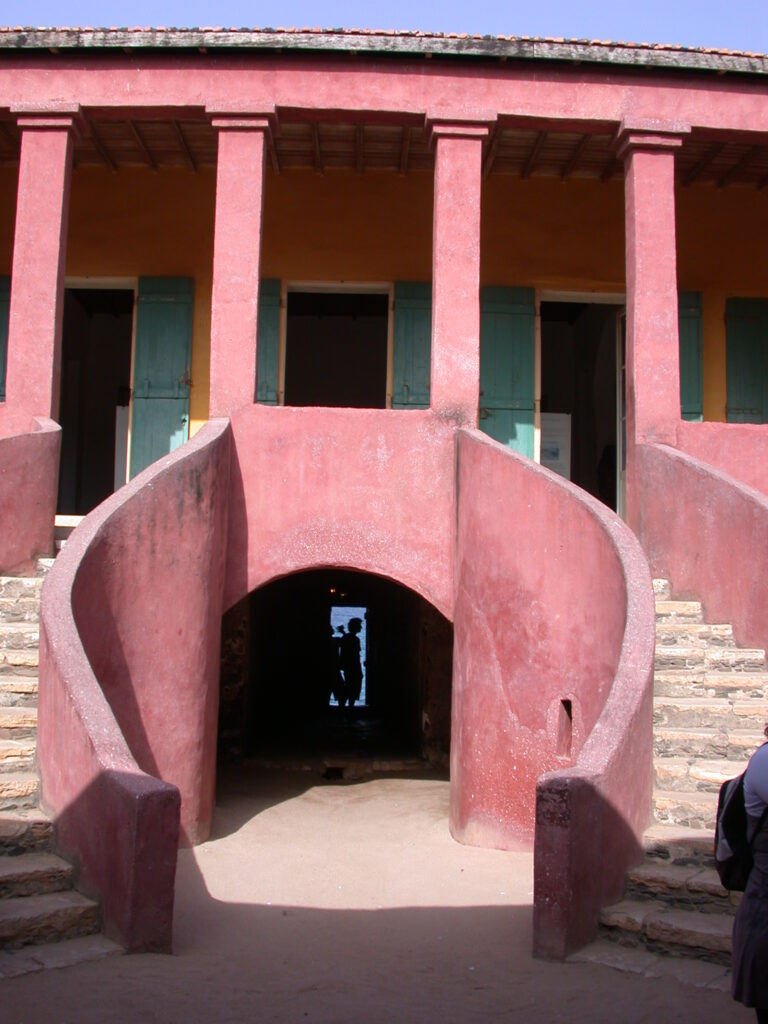
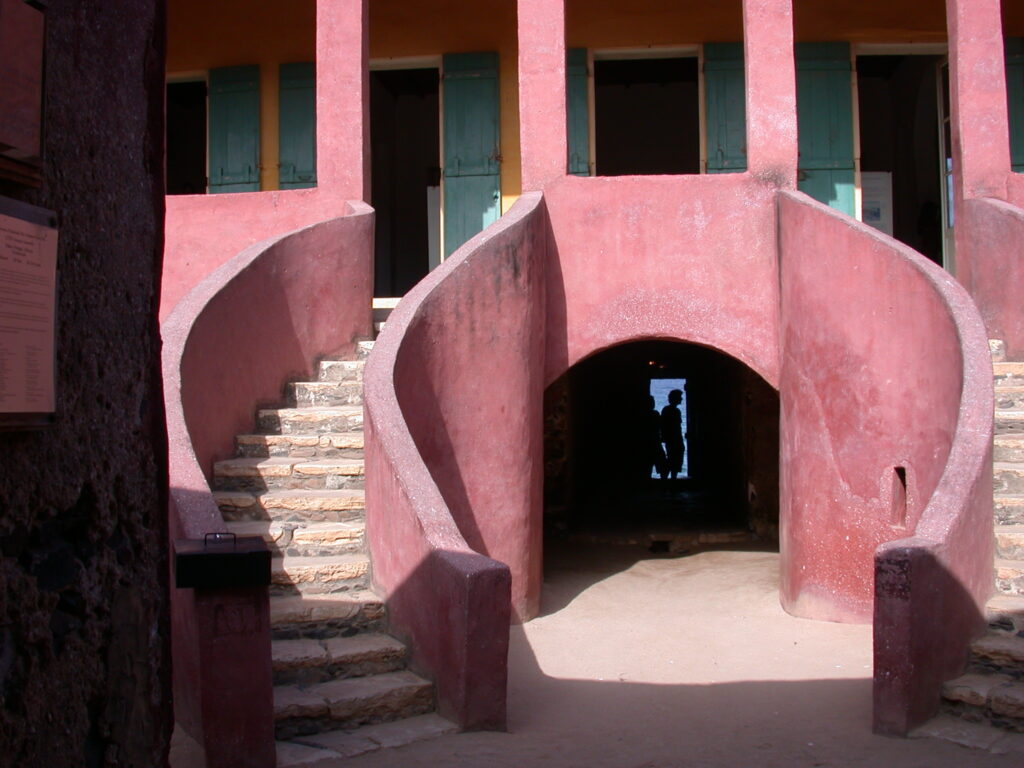
Here’s what it was like to stand just in front of the door out to where the slave ships used to load their human cargo and the sign currently posted by the Door of No Return.
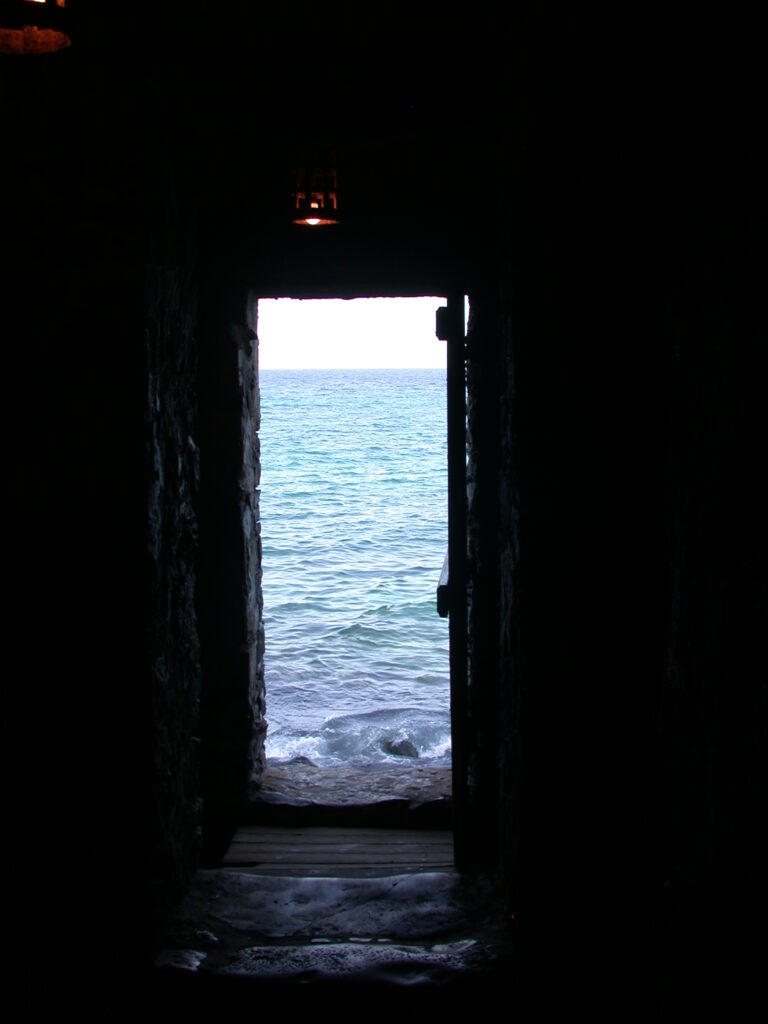
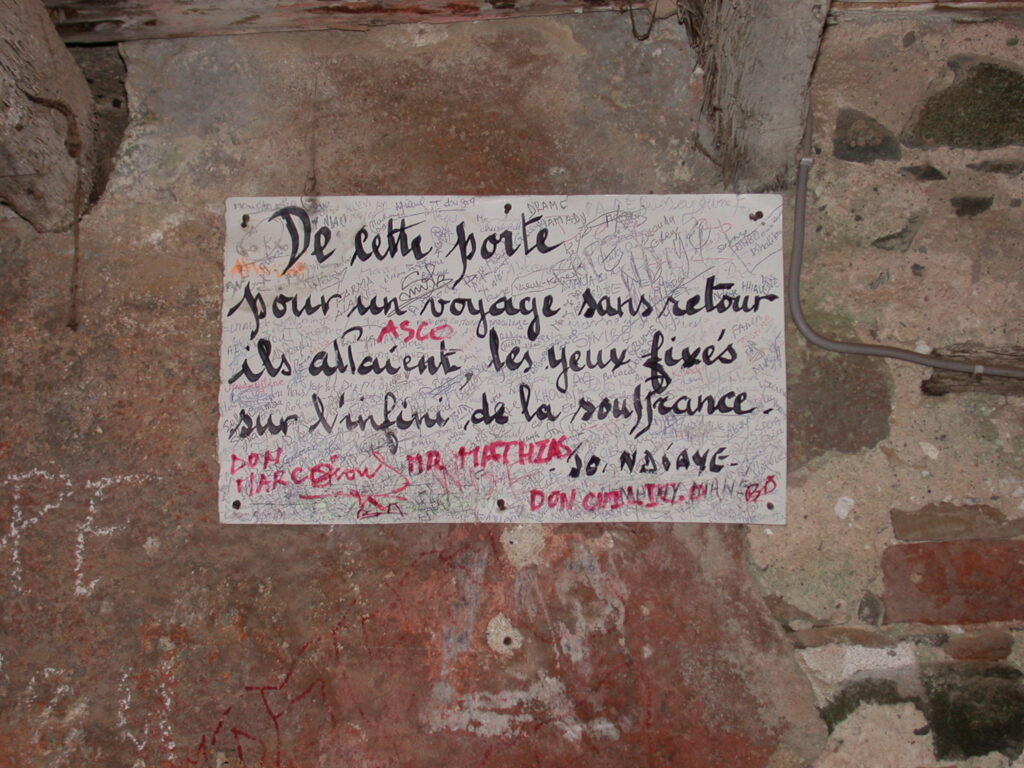
Inside the Maison des Esclaves, an exhibit explained about the history of the slave trade and showed some of the actual fetters used to bind slaves.


In a small museum office with lots of signs and sayings posted on the walls, there is an elder who must have helped to establish the museum. I went in to thank him for what he has done and he replied that to the contrary he must thank me for coming.
After the disturbing and moving museum, it was a real treat to be able to relax on the beach with locals and people visiting from all over the world. I met a sweet Italian fellow (married) who is working in nutrition in Africa. It was so much fun that the Germans and I had to run for the Beer ferry when it was time to go.
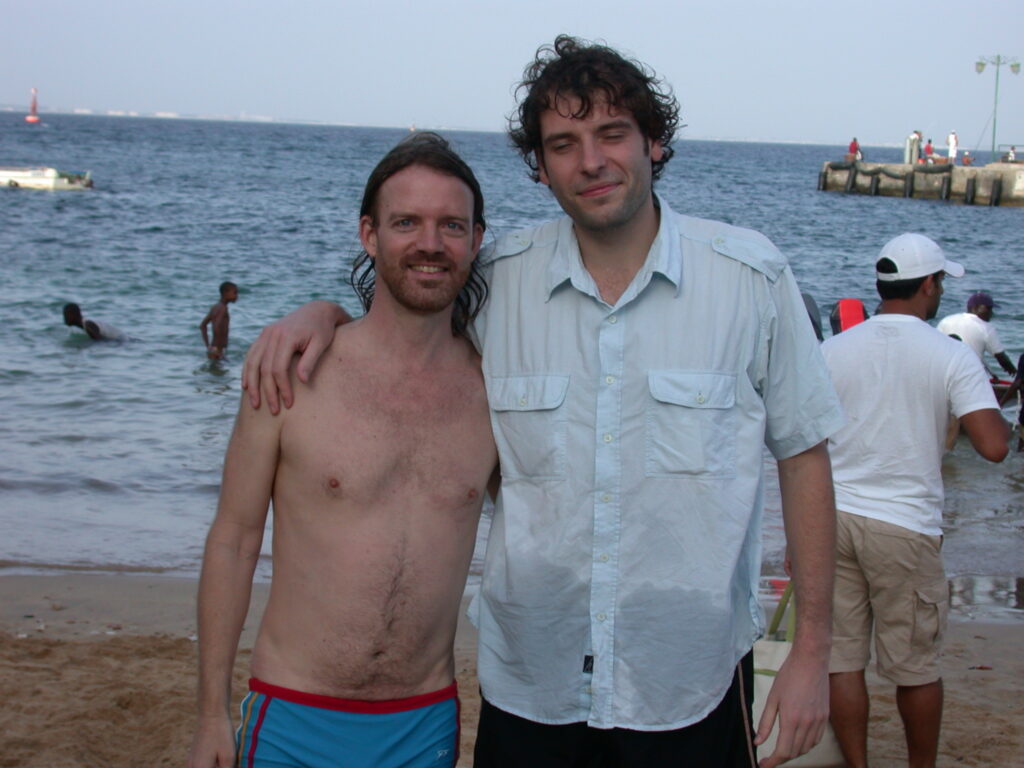
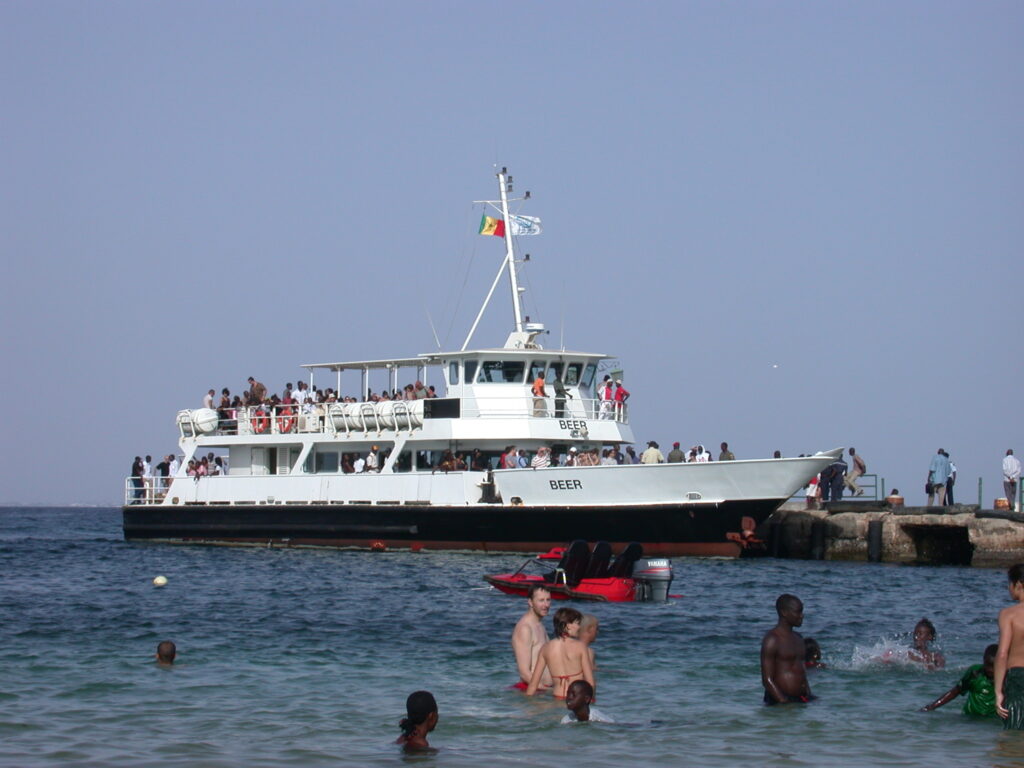
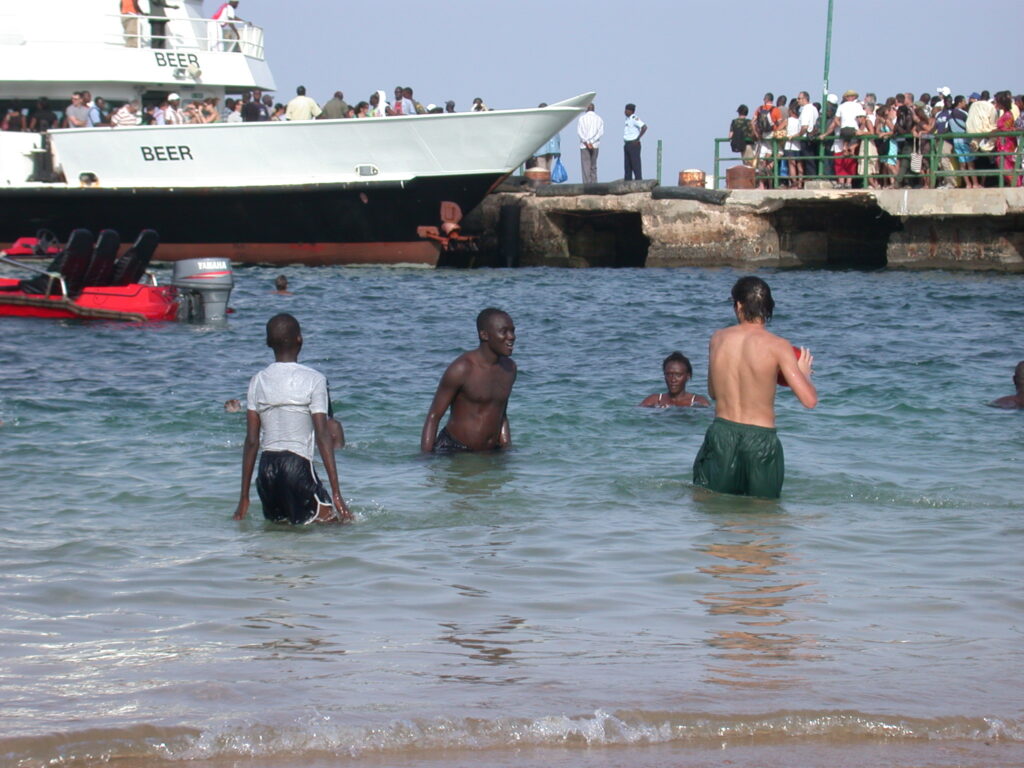
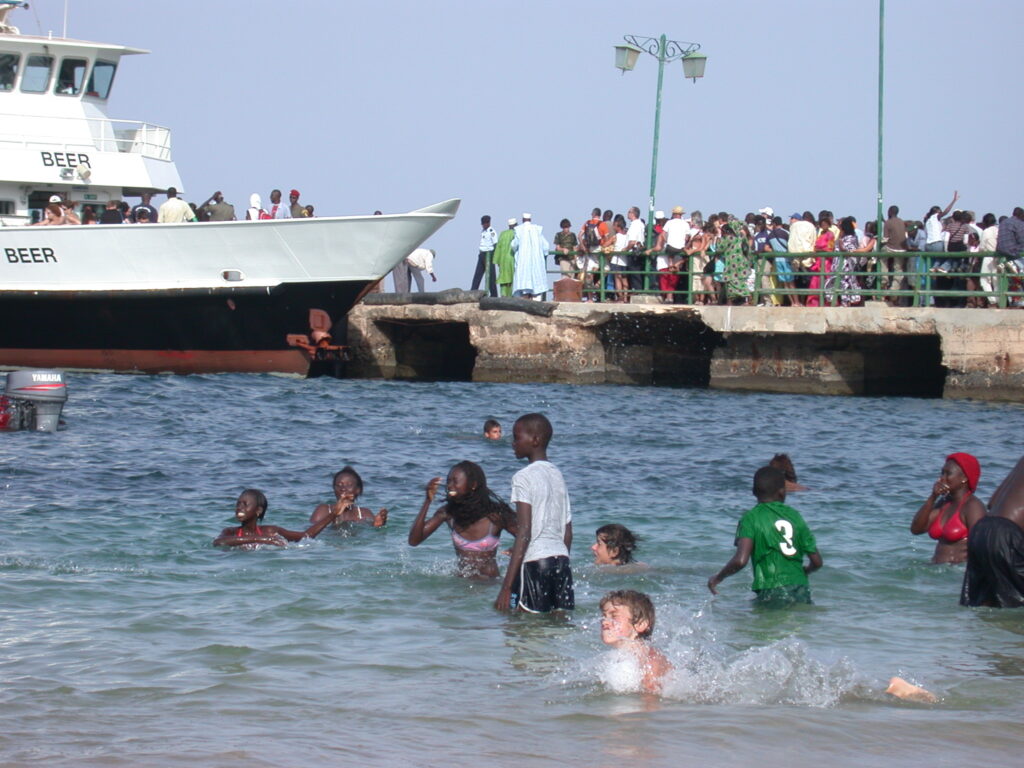
To round out the evening, we dashed to Point des Almadies to see the sunset and eat dinner on the seashore.
In a sad comment on these times, I feel obliged to begin by declaring the “theory” of evolution in its most basic sense entirely correct, despite the fundamentalist religious zealotry preventing many of our fellow humans from learning or understanding it.
Valid debates remain over important but relatively subtle points of evolutionary theory, such as the degree to which organisms inherit behavioural as well as physical traits, the maximum speed with which evolutionary changes can occur, and the impact of individuals versus groups in the evolutionary process.
One measure of adaptivity to our environment here on this planet involves the transition from nomadic gatherer-hunter clans to city-states requiring agriculture to remain stationary and support specialized societal roles. Gatherer-hunter is more appropriate terminology than hunterer-gatherer due to the relative frquency and importance of the two activities for clan survival. Aggregation of city-states through cooperation or conquest produces nations and empires until experiments with genocidal destruction prompt species-level thought and action. Finally, potential catastrophic worldwide resource depletion lays the foundation for planetary ecosphere consciousness.
Today, humans on this planet have made it virtually impossible for any remaining gatherer-hunter societies to continue. Agricultural production is at risk from corporate monoculture methods, threatening the food supply of humans. Nations regularly wage wars at an unimaginable cost in human suffering and empires explore every avenue for exploiting natural and human resources through corporate dominance over representational governments with no regard for “externalities”.
As a species, only a minority have attained species-level thought and action and even fewer are operating with planetary ecosphere consciousness. Imperatives toward clan, nation, empire, and species loyalty will have to evolve rapidly to awareness of our perilous self-manipulated environment if we are to adapt to 21st century realities on planet earth.
The only way to avoid species suicide, dragging many other species along with us, is by learning as much as possible about the ecosphere and our effects on it. Can we navigate a trajectory that provides a basic quality of life for all of us? Is it possible to retain notions of basic human rights and justice? I believe the answer will come through increased education and communication, acts of compassion for our fellow humans and those of all species, and decisionmaking structures that push representation to individuals to the degree each decision impacts each of us.
The backlight on my work computer died, so I had to send it in to Hewlett Packard for repair, thus making it more difficult to follow my New Year’s resolution to write blog entries every day.
I finished Greg Egan’s “Permutation City” today. Read on the recommendation of science fiction writer and EFF colleague Cory Doctorow, it was a fascinating exploration of the possibilities of storing human consciousness inside computers and the possibility of transcendence of computer hardware and reality as we know it. I followed Egan’s point although I’m still unclear on how the universe actually separates from its hardware underpinnings by “gathering dust” or whatever. Anyone care to comment?
Praveen and I had a great discussion of the book, along with concepts such as nanotechnology, fabricators, quantum computing, and quantum cryptography. He lost his contracting job today, so plans to spend more time doing projects related to the Online Policy Group.
One of those projects is to design an online voting system that the Tech Fed and the California Coalition for Civil Rights could use for organizational decisionmaking, since both are coalitions that need a mechanism for tabulating votes on various issues, along with comments from each organization on why it voted the way it did. Long term, it would be even better to have a system that facilitated consensus process online, provided verification of voter identity, and permitted proportional voting schemes for elections of officers or whatever. The nonprofit world has yet to benefit from one of the most basic benefits that networked applications could provide.
Preparations for a trip to Brazil to attend “Living After Capitalism” in association with the World Social Forum in Porto Alegre are going well. I managed to get the air ticket using United frequent flyer miles and I’ve applied for a U.S. passport renewal. The passport was supposed to be ready yesterday since I paid a heft expedite fee, but it hasn’t arrived yet. Hotel reservations are theoretically complete, although not with a high confidence level. Once I have the passport, I should be able to get a Brazilian visa, which now costs $100 in retaliation for a price increase of U.S. visas for Brazilians. I’ve started learning a bit of Brazilian Portuguese as well.